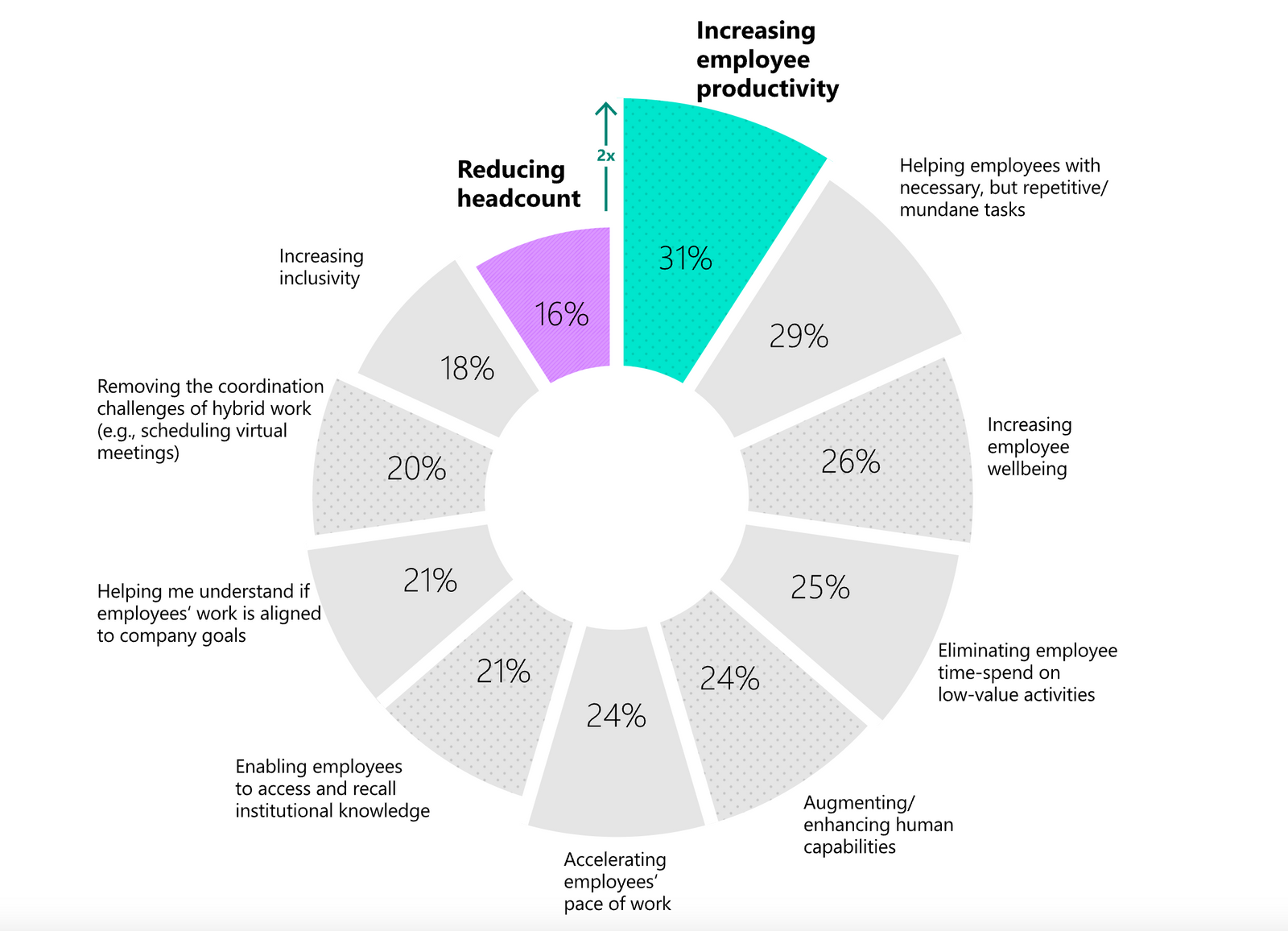
For Many, It Can’t Come Soon Enough
The transition to artificial intelligence (AI) is set to redefine the world of work, a change eagerly awaited by many. Modern work’s accelerated pace, compounded by information overload and constant communication, burdens both employees and executives, stifling creativity and hampering productivity. AI offers a way out of this impasse.
Up until now, AI has largely been self-contained, but next-generation AI co-pilots will collaborate with humans to alleviate 'digital debt' which has hampered innovation. Companies that adopt AI can expect a surge in creativity and productivity, initiating a new era of growth and value.
Microsoft's Chairman and CEO, Satya Nadella, reinforces this view: "The new generation of AI will strip away routine tasks, enabling human creativity. The potential for AI to alleviate digital burdens and empower workers is vast."
Microsoft recently released the 2023 Work Trend Index Annual Report (source link below) discusses the increasing pace of work and how AI is poised to create a whole new way of working. The report highlights three key findings:
- 82% of leaders say their employees will need new skills to be prepared for the growth of AI.
- AI can help employees with necessary but repetitive tasks, increase employee wellbeing, and enhance employees' capabilities.
The shift towards AI as a collaborative partner or co-pilot calls for a radical change in work habits and new AI-related skills. Working seamlessly with AI will soon be as essential as using personal computers and the internet. Critical judgment, complex problem-solving, and creative thinking are becoming key competencies for everyone, not just tech experts. Leaders Microsoft surveyed emphasized the importance of understanding when and how to deploy AI, assess creative work, and check for bias.
Walmart just announced that it's giving 50,000 non-store employees’ access to a generative AI app called “My Assistant” which is trained on corporate information. This app combines data from Walmart with third-party LLMs. "The possibilities with GenAI are broad, especially when we think of how this can benefit not only our associates, but also how we engage with customers and members, enabling more personalized interactions” Said EVP Cheryl Ainoa.
As AI transforms work, effective human-AI partnerships will become the next big change in workplace dynamics. Proficiency in iterative collaboration with AI is set to be a must-have skill for all workers.
Unfortunately, current education isn't keeping pace with these changes. Remarkably, 60% of people feel ill-equipped for their roles. AI offers novel avenues for learning, but it falls on leaders to ready their teams for an AI-enhanced future.
Organizations should embrace AI to alleviate digital debt, build AI aptitude, and empower employees. This will help unleash creativity, unlock productivity, and usher in a new wave of productivity growth and value creation. To achieve this, organizations should:
By adopting AI responsibly and strategically, organizations can create a whole new way of working that fosters innovation and growth.
Cheers!
You can find the original Microsoft study: 2023 Work Trend Index: Annual Report posted here:
Image Credit: Microsoft. Illustration by Manuel Bortoletti
Survey Question Associated with Image:
If the growth of artificial intelligence (AI) in the workplace could lead to the following benefits, which would add the most value to your workplace?
People Found this Post By Searching:
AI
Artificial Intelligence
OpenAI
ChatGPT
Large Language Models
Machine Learning
Natural Language Processing
Neural Networks
Co-Pilots
Algoritm
Using AI in the Workplace